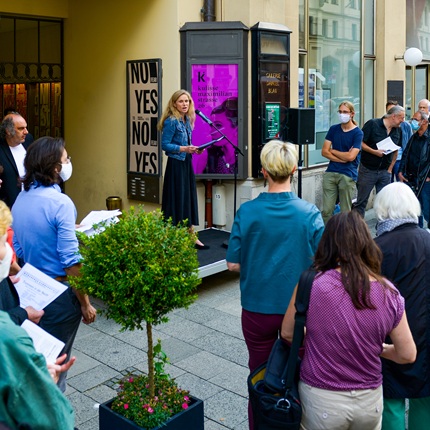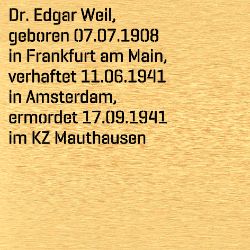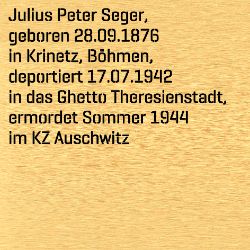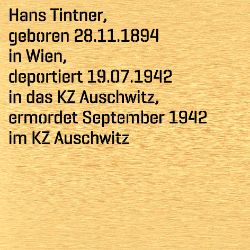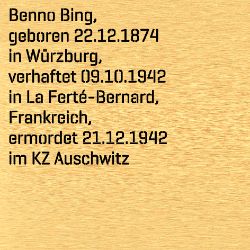Emilie (Emmy) Reye was born on March 4, 1883. She was the second-youngest child of an established Hamburg family. Her wish to become an actress met with opposition from her father. But Emmy Reye nevertheless managed to get his permission to attend the training course for women teachers in Berlin by day and in the evenings to take classes at the Max Reinhardt Seminar, a newly founded acting school. After a brief marriage with the publisher Ernst Rowohlt she never remarried. Emmy Rowohlt lived in Munich during the First World War and the Revolution. In 1922 she went to Italy and France. It was not until 1935 that she returned to Munich, where she performed at the Nationaltheater and the Kammerspiele theatres. Emmy Rowohlt came repeatedly into conflict with the Nazi regime. In Autumn 1939, she was charged for the third time because, according to her police file, she publicly “made extremely spiteful and heretical statements, bearing witness to a base attitude, about the Führer (‘leader’) and other leading personalities in the State and the government”. She was imprisoned in the Stadelheim prison in Munich. Probably for her protection, the prison doctor declared her of unsound mind. On February 5, 1940 Emmy Rowohlt was admitted to the sanatorium and nursing home Eglfing-Haar. Her medical file says about her, “insolent, completely uncritical, tells lies, twisted, arrogant, demanding”. In April 1941 she escaped, but turned herself in again and was now isolated from the other patients, sometimes in shackles. On September 1, 1943 the home’s doctor classified Emmy Rowohlt as “unworthy of life” and had her transferred to the “hunger house”. From there, she wrote to her sister on December 29, 1943: “If you’d have guessed my great hunger for bread, you’d be sure to have put in 2 thick slices of black bread … I weigh just 47 kg. How much do you weigh?” On September 28, 1944 Emmy Rowohlt died due to deliberate food deprivation. At the end, the actress, who was 1.68 m tall, weighed just 38 kilos.



-Rowohlt_portrait.jpg/jcr:content/PORTRAIT_14431.jpg)

